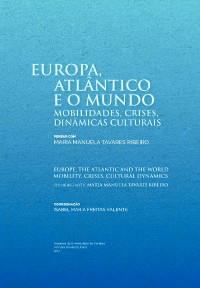Please use this identifier to cite or link to this item:
https://hdl.handle.net/10316.2/90516| DC Field | Value | Language |
|---|---|---|
| dc.contributor.author | Teixeira, Nuno Severiano | |
| dc.date.accessioned | 2017-08-22T16:29:58Z | |
| dc.date.accessioned | 2020-09-07T10:47:03Z | - |
| dc.date.available | 2017-08-22T16:29:58Z | |
| dc.date.available | 2020-09-07T10:47:03Z | - |
| dc.date.issued | 2017 | - |
| dc.identifier.isbn | 978-989-26-1335-2 | |
| dc.identifier.isbn | 978-989-26-1336-9 (PDF) | |
| dc.identifier.uri | https://hdl.handle.net/10316.2/90516 | - |
| dc.description.abstract | Who rules the world? During the cold war, the answer was simple: the States, the superpowers, the United States and the Soviet Union. In the immediate post cold war, the answer was still possible: were no longer two, but one hegemonic power. It was the unipolar moment of the American Empire. But, today, who runs the real world? The established global powers or the emerging regional powers? The global finance or the social networks? The global media chains or the terrorist networks? The answer is, today, a lot harder. This article attempts an answer at the crossroads of two simultaneous but conflicting trends: the logic of globalization and the logic of Westphalia. And argues that the fundamental contradiction between the political players who have legitimacy but not the ability to manage global issues and the players of globalization who have the ability but lack legitimacy | eng |
| dc.description.abstract | Quem governa o mundo? Durante a Guerra Fria a resposta era simples: os Estados, as superpotências, os Estados Unidos e a União Soviética. No imediato pós Guerra Fria, a resposta ainda era possível: já não eram duas, mas uma só potência hegemónica. É o momento unipolar do Império americano. Mas, hoje, quem comanda, verdadeiramente, o mundo? As potências globais estabelecidas ou as potências regionais emergentes? A finança global ou as redes sociais? As cadeias de media global ou as redes terroristas? A resposta é, hoje, muito mais difícil. Este artigo procura-a no cruzamento de duas lógicas simultâneas mas contraditórias: a lógica da globalização e a lógica de Vestefália. E argumenta que a contradição fundamental é entre os agentes políticos que têm legitimidade mas não têm capacidade para gerir as questões globais e os agentes da globalização que têm capacidade mas não têm legitimidade. | por |
| dc.language.iso | por | - |
| dc.publisher | Imprensa da Universidade de Coimbra | por |
| dc.relation.ispartof | http://hdl.handle.net/10316.2/42682 | por |
| dc.rights | open access | - |
| dc.subject | Globalization | eng |
| dc.subject | westphalia | eng |
| dc.subject | international order | eng |
| dc.subject | Globalização | por |
| dc.subject | vestefália | por |
| dc.subject | ordem internacional | por |
| dc.title | Quem governa o mundo: vestefália ou globalização | por |
| dc.title.alternative | Governing the World: westphalia vs globalization | por |
| dc.type | bookPart | por |
| uc.publication.firstPage | 63 | - |
| uc.publication.lastPage | 71 | - |
| uc.publication.location | Coimbra | por |
| dc.identifier.doi | 10.14195/978-989-26-1336-9_5 | - |
| uc.publication.digCollection | PB | por |
| uc.publication.orderno | 6 | - |
| uc.publication.area | Artes e Humanidades | por |
| uc.publication.bookTitle | Europa, Atlântico e o Mundo: mobilidades, crises, dinâmicas culturais: pensar com Maria Manuela Tavares Ribeiro | - |
| uc.publication.manifest | https://dl.uc.pt/json/iiif/10316.2/90516/204520/manifest?manifest=/json/iiif/10316.2/90516/204520/manifest | - |
| uc.publication.thumbnail | https://dl.uc.pt/retrieve/11062460 | - |
| uc.publication.parentItemId | 56839 | - |
| uc.itemId | 68918 | - |
| item.grantfulltext | open | - |
| item.fulltext | With Fulltext | - |
| Appears in Collections: | Europa, Atlântico e o Mundo: mobilidades, crises, dinâmicas culturais: pensar com Maria Manuela Tavares Ribeiro | |
Files in This Item:
| File | Description | Size | Format | |
|---|---|---|---|---|
| quem_governa_o_mundo.pdf | 4.43 MB | Adobe PDF |  |
Items in DSpace are protected by copyright, with all rights reserved, unless otherwise indicated.
